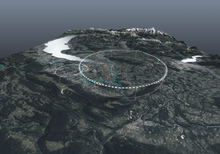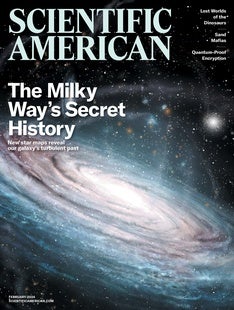 |
| February 13, 2024 |
At the end of last month, Taylor Swift was a target of sexually explicit, nonconsensual deepfake images made using artificial intelligence and posted to the social platform X. Federal oversight of nonconsensual deepfake images and videos is lacking, experts told reporter Brian Contreras. Read more in this week's top story. |
| |
 |
| |
| |
| |
| |
| |
| Astronomy The Forgotten Star of Radio Astronomy Ruby Payne-Scott and her colleagues unlocked a new way of seeing the universe, but to keep her job, Ruby had to keep a big secret. | | By Samia Bouzid,Carol Sutton Lewis,The Lost Women of Science Initiative | | | |
| |
| |
| |
FROM THE ARCHIVE
 | | | |
LATEST ISSUES
 |
| |
| Questions? Comments?  | |
| Download the Scientific American App |
| |
| |



















